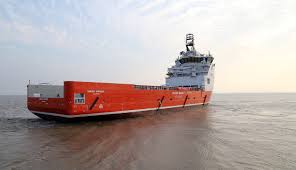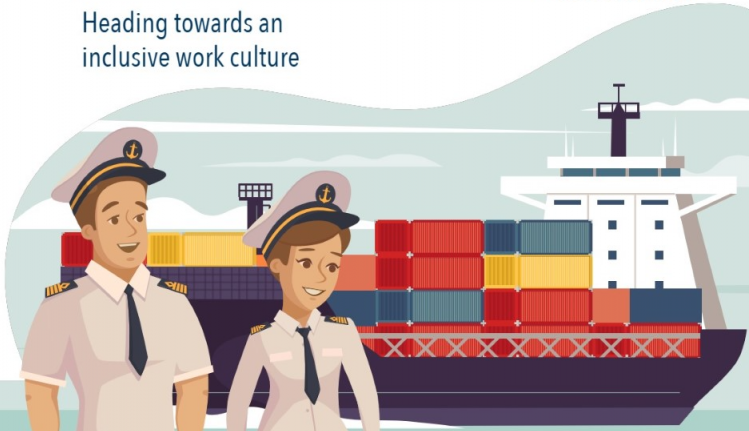Welcome to indianseafarers.com
This is a personal website created with an intention to helpseafarers with information to empower themselfs to face the challenges at sea and ashore.However, users are cautioned to verify the correctness ...information with the authentic sources. Since the site is not professionally managed, two-way feedback system may not work. Discussions are limited to marine related matters only especially subjects related to Politics, Religion and Sex are banned in this site...The site is under construction. Show More ...

DG SHIPPING, MUMBAI (DGS)DGS Site
The Directorate General of Shipping is the head of maritime administration of India. This Directorate deals... with implementation of Merchent shipping act,shipping policies and legislations to ensure the safety of life & ships at sea, prevention of marine pollution, promotion of maritime education and training, regulation of employment welfare of seamen, development of coastal shipping, augmentation of shipping tonnage, examination and certification of Merchant Navy Officers, Supervision and Control of Mercantile Marine Department, Shipping office and other allied offices. Show More

MERCANTILE MARINE DEPARTMENT (MMD) MMD Mumbai site
MMDs are under the administrative control of Directorate General of Shipping (DGS), administers implementation of MS act. ...All examination, endorsements of revalidation coc are dealt with at this office. Survey and certification of ships and Registration of ships and related ativities are also dealt with MMDs. Statutory certification encompassing international conventions like SOLAS, MARPOL, Int. Load Line etc, Survey during construction of ships; shipping casualties inquires & investigation; participation in search & rescue; Inspection and approval of statutory equipments e.g life saving and fire fighting appliances, GMDSS, navigational aids, pollution prevention equipments etc; Supervision of repairs and construction of ships on behalf of State and Central Govt. Organizations ; Flag State Implementation and Port State Control inspections; ISM & ISPS audits. Show More

SHIPPING MASTER'S OFFICEContact details of SMO
Government Shipping Officeat Mumbai(Emaid: sm-mum-ship@gov.in), Kolkata(Email Id: sm-kol-ship@gov.in) and... Chennai(Email Id: sm-chn-ship@gov.in) are established under Section 11 of MS Act 1958 are responsible for monitoring the engagementand discharge of seafarers, settlement of disputes between the seafarers and their employers, issue of continuous discharge certificates (CDC) conduct of enquiries into death onboard ships etc.The Govt. Shipping Office is headed by the Shipping Master. All CDC/BSID related issues are dealt by shipping master. This include issuence of CDC, revalidation, relacement of CDC.Also under takes the liaison work between the Indian seamen and the officials of the country they visit and render all assistance to the seamen in case of distress Show More

Role of IMO in ShippingIMO Website
IMO – the International Maritime Organization – is the United Nations specialized agency with responsibility for the ....safety and security of shipping and the prevention of marine and atmospheric pollution by ships. IMO's work supports the UN Sustainable Development Goals (SDG)As a specialized agency of the United Nations, IMO is the global standard-setting authority for the safety, security and environmental performance of international shipping. Its main role is to create a regulatory framework for the shipping industry that is fair and effective, universally adopted and universally implemented. IMO encourages innovation and efficiency.Shipping is a truly international industry, and it can only operate effectively if the regulations and standards are implemented on an international basis. And IMO is the forum at which this process takes place.International shipping transports more than 80 per cent of global trade to peoples and communities all over the world. Shipping is the most efficient and cost-effective method of international transportation for most goods; it provides a dependable, low-cost, enviorment friendly means of transporting goods globally, facilitating commerce and helping to create prosperity among nations and peoples. Show More

Indian Register of ShippingIRS Website
Indian Register of Shipping (IRClass) is an international ship classification society providing ship classification and ...certification as well as technical inspection services. IRClass is a recognized organization of Govt of India and continually paving the way for setting standards for safety, environment protection and tackling issues affecting the maritime industry. IRClass provides solutions for Maritime Risk Management’of ships, compatible witht their safety. Show More

Forms & ChecklistLink to Forms & Checklist
Most of the application forms and checlists are available in the MMD Mumbai website. All the forms and can be downloded ...and can used in all MMDs also. . The forms and checklists are avialable in the MMD Mumbai website under downloads. the link is given above. Show More
Blog
vatt20@yahoo.com This is a personal website created with an intention to help seafarer to empower themselfs to face the challenges at sea and ashore. However, users are cautioned to verify the correctness of the information through authentic sources. Since the site is not professionally managed, two-way feedback system may not work. Discussions are limited to marine related matters only especially subjects related to Politics, Religion and Sex are banned in this site...The site is under construction.
India This is a personal website created with an intention to help seafarer to empower themselfs to face the challenges at sea and ashore. However, users are cautioned to verify the correctness of the information through authentic sources. Since the site is not professionally managed, two-way feedback system may not work. Discussions are limited to marine related matters only especially subjects related to Politics, Religion and Sex are banned in this site...The site is under construction.
+91 8105094248 This is a personal website created with an intention to help seafarer to empower themselfs to face the challenges at sea and ashore. However, users are cautioned to verify the correctness of the information through authentic sources. Since the site is not professionally managed, two-way feedback system may not work. Discussions are limited to marine related matters only especially subjects related to Politics, Religion and Sex are banned in this site...The site is under construction.
